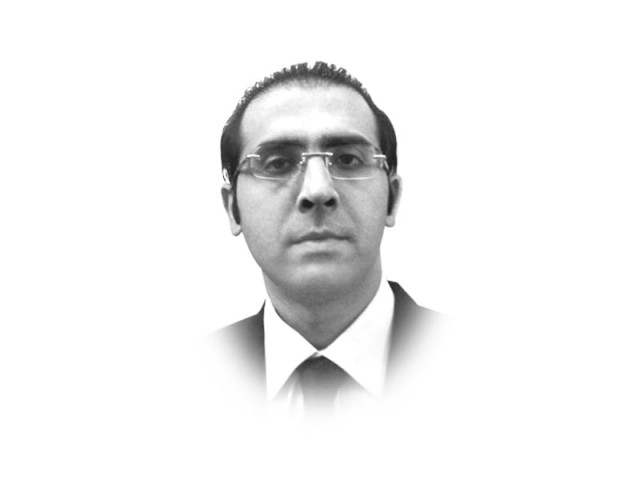The Great Leap Backwards
The police model was the only one British knew of maintaining order i.e. using barbaric force on indigenous populace.

The background of Police Act 1861 is instructive. Sir Charles Napier established the Sindh police on the pattern of the Irish Constabulary in 1843. The Irish Constabulary model was devised by the British Empire to quell the discontentment that the Irish population displayed to the centralised rule of Westminster. The model was predicated as the only manner that the empire knew of maintaining order i.e. using barbaric force on the indigenous populace under the assumption of according them subhuman status. The British Empire was sufficiently satisfied with Napier’s efforts in Sindh to set up a Police Commission in 1860 with the mandate of establishing a common system of policing on Napier’s model across the empire. The British were not convinced about the efficacy of the system at home and continued with Metropolitan Police Act 1929 in the United Kingdom. In the British home-grown model, the police had (and still have) very little administrative function, being encouraged to liaison with the local citizenry and perhaps most significantly being a purely civilian enterprise. On the contrary, the major policy directive to the Police Commission of 1860 was that “though the duties of the police should be civil, not military, the organisation and discipline of the police should be similar to those of a military body”. Commissioned police officers and deputy commissioners were, almost without exception, British. The system relied on the iron administration of force upon the ‘bloody Indians’ to ensure the maintenance of order. The presumption was of a hostile native population. The single most noticeable feature of the model is the contempt for the native.
The DC was a mini viceroy of sorts. He was the most visible manifestation of the empire, having powers as wide-ranging as district administration, revenue collection, maintenance of public order and judicial magisterial function. The officers were trained to distance themselves from the public, and even now many bureaucrats take ridiculous pride on how they have managed to serve for decades without mingling with the ordinary citizen. They especially revel in the pedantry of being rude to the elected representatives of the people. The DC would have made Plato proud as the embodiment of the convergence of decision-making in the ‘philosopher king’. And now it seems he is back (since the DC was very rarely a ‘she’).
The purpose of giving this rather tortured historical background is to emphasise our masochistic desire of re-enacting colonial, imperial grandeur. The fact that the system was fundamentally designed to oppress us does not bother us. Paulo Freire, in his unbelievably dazzling Pedagogy of the Oppressed, writes, “during the initial stage of the struggle, the oppressed, instead of striving for liberation, tend themselves to become oppressors, or ‘sub-oppressors’.... Their ideal is to be men; but for them, to be a ‘man’ is to be an oppressor. This is their model of humanity”. Similarly, for us, the DC represents the viceroy in all his vile glory. The colonial mansions are designed to alienate. The local labour councillor, on the other hand, represents the commoner having a modicum of authority and recognition, and deep down the state finds this uncouth to the point of being unbearable. The DC brings stability to the system, albeit at the expense of fairness.
The objective of the move is to establish the comfortable martial law system again, only this time around the military is not intended be in charge, at least not yet. The present government has to be praised for making a decent effort for devolving decision-making to the provinces, and the next logical step in this trajectory should have been according more power to the grass-roots community level. Instead, we decided to take an incredible 150-year leap backwards. The insidious part of these schizophrenic policies is the concentration of tremendous power to unelected bureaucrats, trained in the colonial tradition.
The police, even post-2002, has innumerable flaws and is in grave need of reforms. However, the answer does not lie in reverting to a pre-industrialisation and urbanisation colonial model. The Metropolitan Police model, which entails the police commissionerate system, has been adopted in India and Bangladesh with relative success, the most obvious example being the significant containment of the Mumbai underworld. Our extraordinary circumstances require the conferment of necessary magisterial powers of maintenance of law and order to a professional and accountable police force under an efficiently implemented police commissionerate system. The police need to be empowered so as to make them independent and to ensure that accountability mechanisms are enhanced. However, isolating the local police from the public and subjugating them to the oversight of an unelected revenue civil servant instead of an elected representative is demagogical. The trite saying ‘what goes around comes around’ is an apt description of the recent move. It seems that after 170 odd years, Sir Charles Napier is back in Sindh with a vengeance.
Published in The Express Tribune, July 13th, 2011.















COMMENTS
Comments are moderated and generally will be posted if they are on-topic and not abusive.
For more information, please see our Comments FAQ